Bay of Plenty, Central Auckland, East Auckland, North Auckland, South Auckland, West Auckland, Hawkes Bay, Northland, Lakes > Private Hospitals & Specialists >
Canopy Cancer Care
Private Service, Oncology, Haematology
Today
850 Cameron Road, Tauranga South, Tauranga
8:30 AM to 5:30 PM.
Description
Private cancer care in Auckland (Epsom, North Shore, Warkworth and Ormiston), Tauranga, Whangārei, Hawke's Bay and also Rotorua New Zealand
What is Canopy and how can we help?
Canopy Cancer Care is a leading private clinic for adult cancer patients. Our team specialise in the care of patients requiring cancer treatment with chemotherapy, immunotherapy, antibody therapy, hormone therapy and more targeted therapies.
The Canopy vision is to offer New Zealanders world-class cancer care, delivered locally.
Every day and with every patient, we work towards this goal. The Canopy team have been providing world-class services since 2010. We have built a strong team who are all passionate about our patients and the outcomes that matter to them most. We aim to provide the highest quality of care and will co-ordinate all aspects of treatment where possible.
If you are based in Auckland, you have the option to be seen at either our Warkworth, Takapuna, Epsom or Ormiston clinics.
When confirming your appointments, please let your scheduler or nurse know your preferred location. Our teams work across all sites on a regular basis so you can be assured of the same world-class levels of care and attention.
Why Choose Canopy?
- Quick appointment times - patients are all clinically assessed within seven days
- The highest professional standards - highly experienced and dedicated specialists, nurses, dedicated pharmacists and support staff
- Personalised treatment plans - by professionals committed to delivering quality care, patient experience and outcomes
- Global sourcing of therapies - we have global reach to ensure patients have access to the most effective drug therapies
- Individualised patient care program - our "Under the Canopy" program has been specifically designed to support patients navigate their personal cancer journey
- Central locations - with easy parking and access, Canopy is co-located near other services including radiology, radiotherapy, pharmacy and cafes
- Purpose designed treatment clinics - patient feedback and extensive research have resulted in calm and relaxed healing environments
- Specialist on call 24/7 - for complete peace of mind
- DAA Accredited - to ensure the highest levels of quality and safety
Procedures and Services Offered
- Antibody Therapy
- Chemotherapy
- Immunotherapy
- Hormone Therapy
- Targeted Therapy
Areas of Interest
- Genomics
- Cancer Molecular Profiling
- Brain Tumours
- Head and Neck Cancer
- Gastro-Intestinal Cancers incl:
- Gastro-Intestinal Stromal Tumour (GIST)
- Oesophageal Cancer
- Stomach Cancer
- Duodenal Cancer
- Small Bowel Cancer
- Colon Cancer
- Rectal Cancer
- Colorectal Cancer
- Anal Cancer
- Pancreatic Cancer
- Biliary Cancer
- Gallbladder Cancer
- Renal Cancer
- Breast Cancer
- Genitourinary Cancer incl:
- Renal Cancer
- Kidney Cancer
- Ureter Cancer
- Bladder Cancer
- Prostate Cancer
- Testicular Cancer
- Gynaecological Cancer incl:
- Ovarian Cancer
- Fallopian Cancer
- Uterine Cancer
- Cervical Cancer
- Vaginal Cancer
- Leukaemia
- Lung Cancer
- Lymphoma
- Melanoma
- Mesothelioma
- Myeloma
- Myeloproliferative Disorders
- Non-Hodgkins Lymphoma
- Pancreas Carcinoma
- Skin Cancer/Melanoma
Consultants
Note: Please note below that some people are not available at all locations.
-

Dr Edmond Ang
Medical Oncologist
Available at 121 Bank Street, Whangārei
-
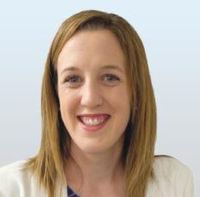
Dr Paula Barlow
Medical Oncologist
Available at 310 Orchard Road, Hastings
-
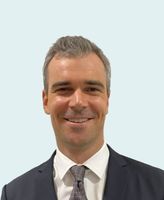
Dr Oliver Brake
Haematologist
Available at 850 Cameron Road, Tauranga South, Tauranga
-

Dr Elliott Brenman
Medical Oncologist
Available at 850 Cameron Road, Tauranga South, Tauranga
-

Dr Reuben Broom
Medical Oncologist
Available at 98 Mountain Road, Epsom, 213 Shakespeare Road, Takapuna, Auckland
-

Dr Peter Browett
Haematologist
Available at 98 Mountain Road, Epsom, 213 Shakespeare Road, Takapuna, Auckland
-

Dr Laird Cameron
Medical Oncologist
Available at 98 Mountain Road, Epsom
-

Dr Jonathan Davis
Medical Oncologist
Available at 850 Cameron Road, Tauranga South, Tauranga
-
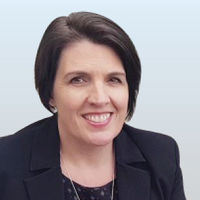
Dr Lisa Dawson
Medical Oncologist
Available at 121 Bank Street, Whangārei
-

Dr Richard Doocey
Haematologist
Available at 98 Mountain Road, Epsom, 213 Shakespeare Road, Takapuna, Auckland
-

Dr Peter Fong
Medical Oncologist
Available at 98 Mountain Road, Epsom, 213 Shakespeare Road, Takapuna, Auckland
-

Dr Simon Fu
Medical Oncologist
Available at 98 Mountain Road, Epsom
-

Dr Fritha Hanning
Medical Oncologist
Available at 98 Mountain Road, Epsom
-
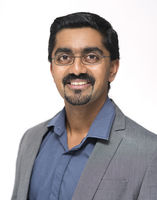
Dr Prashanth Hari Dass
Medical Oncologist
Available at Southern Cross Rotorua Hospital
-

Dr Michelle Head
Medical Oncologist
Available at 850 Cameron Road, Tauranga South, Tauranga
-
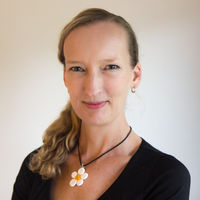
Dr Carmel Jacobs
Medical Oncologist
Available at 213 Shakespeare Road, Takapuna, Auckland
-

Dr Joanna Jones
Medical Oncologist
Available at 850 Cameron Road, Tauranga South, Tauranga
-
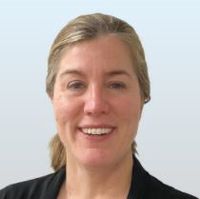
Dr Jody Jordan
Medical Oncologist
Available at 310 Orchard Road, Hastings
-
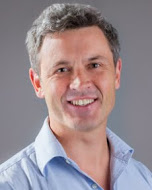
Dr Ben Lawrence
Medical Oncologist
Available at 98 Mountain Road, Epsom
-

Dr Nicola Lawrence
Medical Oncologist
Available at 98 Mountain Road, Epsom, 213 Shakespeare Road, Takapuna, Auckland
-

Dr Aileen Ludlow
Medical Oncologist
Available at 98 Mountain Road, Epsom
-
Dr Daisy Wing Mak
Medical Oncologist
Available at 98 Mountain Road, Epsom, 213 Shakespeare Road, Takapuna, Auckland
-
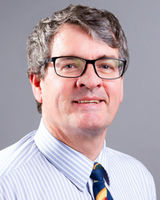
Dr Mike McCrystal
Medical Oncologist
Available at 98 Mountain Road, Epsom, 213 Shakespeare Road, Takapuna, Auckland
-
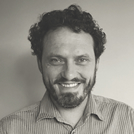
Dr Vince Newton
Medical Oncologist
Available at 121 Bank Street, Whangārei
-

Dr Richard North
Medical Oncologist
Available at 850 Cameron Road, Tauranga South, Tauranga
-
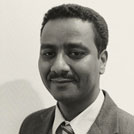
Dr Osama Salih
Medical Oncologist
Available at 98 Mountain Road, Epsom, 213 Shakespeare Road, Takapuna, Auckland
-
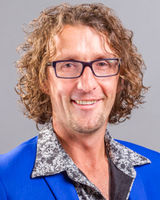
Dr Richard Sullivan
Medical Oncologist
Available at 98 Mountain Road, Epsom, 213 Shakespeare Road, Takapuna, Auckland
-

Dr William Thompson
Medical Oncologist
Available at 850 Cameron Road, Tauranga South, Tauranga
-

Dr Naera Waters
Medical Oncologist
Available at 98 Mountain Road, Epsom, 213 Shakespeare Road, Takapuna, Auckland
-

Dr Alistair Wickham
Medical Oncologist
Available at Southern Cross Rotorua Hospital
-

Dr Michelle Wilson
Medical Oncologist
Available at 98 Mountain Road, Epsom
-

Dr Abbey Wrigley
Medical Oncologist
Available at 98 Mountain Road, Epsom, 213 Shakespeare Road, Takapuna, Auckland, Rodney Surgical Centre, 77 Morrison Drive, Warkworth, Auckland
Referral Expectations
To be treated at Canopy Cancer Care patients will need a referral from a GP or Specialist.
The background information they supply will include details of the patient's medical history and the results of the investigations such as blood tests and scans. This information and the referral needs to be sent directly to Canopy Cancer Care at . If you are in the Bay of Plenty region please send referrals to admintauranga@canopycancercare.co.nz.
Once this information is received, one of our schedulers will contact the patient to make an appointment with the appropriate oncologist or haematologist.
Please click here to learn more about the appointment process.
Fees and Charges Description
An indication of treatment costs will be given at the first consultation. Patients will need to discuss their insurance position with their oncologist.
Canopy Cancer Care is a Southern Cross Affiliated Provider and also a nib First Choice Provider.
Hours
850 Cameron Road, Tauranga South, Tauranga
Procedures / Treatments
Chemotherapy is the use of medicines to kill or reduce the spread of cancer cells and is the treatment used at Canopy Cancer Care. Chemotherapy is given as cycles and may be given once a day, once a week or even once a month. This depends on the type of cancer and the best regimen (course) as determined by research. Chemotherapy, unlike radiation (which treats only the part of the body exposed to the radiation), treats the entire body. As a result, any cells that may have escaped from where the cancer originated are treated. A doctor who prescribes chemotherapy is known as a medical oncologist. Depending on what type of cancer you have and whether it has spread, your doctor may use chemotherapy to: Eliminate all cancer cells in your body, even when cancer is widespread Prolong your life by controlling cancer growth and spread or Relieve symptoms and improve your quality of life. Most chemotherapy drugs are given in one of the following ways: You might take a tablet or medicine orally (swallow) It may be given intravenously as an injection over a short period of time or as an infusion over a longer period of time. For these treatments you come into the Department usually for part of the day. Side effects Some people have no side effects at all from chemotherapy. Sometimes, however, chemotherapy will make you feel sick. As each type of chemotherapy has different side effects they will be discussed with you prior to starting any treatment so you know what to expect. Chemotherapy targets cells that are quickly dividing, whether it's a cancer cell or not. Therefore, some non-cancer cells that divide quickly are also damaged. The following is a list of some normal cells that divide quickly in the body and may be susceptible to the effects of chemotherapy: Cells in your hair (can cause hair loss) Cells of the skin and mouth (can cause sores in your mouth and dry skin) Cells in your stomach and intestines (can cause you to feel sick, vomit or have diarrhoea) Cells in your bone marrow. This is where your red and white blood cells are made. White blood cells fight infections, so temporarily you are very prone to these and they can become serious. Loss of red blood cells can make you anaemic and tired. There are many medicines you can take to reduce or lessen these unwanted effects of chemotherapy. In some cases, chemotherapy may be the only treatment you need. More often, it's used in conjunction with other treatments, such as surgery or radiation, to improve results. For example, you may receive: Neoadjuvant chemotherapy. The goal of neoadjuvant therapy is to reduce the size of a tumour with chemotherapy before surgery or radiation therapy. Adjuvant chemotherapy. Given after surgery or radiation, the goal of adjuvant chemotherapy is to eliminate any cancer cells that might linger in your body following earlier treatments.
Chemotherapy is the use of medicines to kill or reduce the spread of cancer cells and is the treatment used at Canopy Cancer Care. Chemotherapy is given as cycles and may be given once a day, once a week or even once a month. This depends on the type of cancer and the best regimen (course) as determined by research. Chemotherapy, unlike radiation (which treats only the part of the body exposed to the radiation), treats the entire body. As a result, any cells that may have escaped from where the cancer originated are treated. A doctor who prescribes chemotherapy is known as a medical oncologist. Depending on what type of cancer you have and whether it has spread, your doctor may use chemotherapy to: Eliminate all cancer cells in your body, even when cancer is widespread Prolong your life by controlling cancer growth and spread or Relieve symptoms and improve your quality of life. Most chemotherapy drugs are given in one of the following ways: You might take a tablet or medicine orally (swallow) It may be given intravenously as an injection over a short period of time or as an infusion over a longer period of time. For these treatments you come into the Department usually for part of the day. Side effects Some people have no side effects at all from chemotherapy. Sometimes, however, chemotherapy will make you feel sick. As each type of chemotherapy has different side effects they will be discussed with you prior to starting any treatment so you know what to expect. Chemotherapy targets cells that are quickly dividing, whether it's a cancer cell or not. Therefore, some non-cancer cells that divide quickly are also damaged. The following is a list of some normal cells that divide quickly in the body and may be susceptible to the effects of chemotherapy: Cells in your hair (can cause hair loss) Cells of the skin and mouth (can cause sores in your mouth and dry skin) Cells in your stomach and intestines (can cause you to feel sick, vomit or have diarrhoea) Cells in your bone marrow. This is where your red and white blood cells are made. White blood cells fight infections, so temporarily you are very prone to these and they can become serious. Loss of red blood cells can make you anaemic and tired. There are many medicines you can take to reduce or lessen these unwanted effects of chemotherapy. In some cases, chemotherapy may be the only treatment you need. More often, it's used in conjunction with other treatments, such as surgery or radiation, to improve results. For example, you may receive: Neoadjuvant chemotherapy. The goal of neoadjuvant therapy is to reduce the size of a tumour with chemotherapy before surgery or radiation therapy. Adjuvant chemotherapy. Given after surgery or radiation, the goal of adjuvant chemotherapy is to eliminate any cancer cells that might linger in your body following earlier treatments.
- Eliminate all cancer cells in your body, even when cancer is widespread
- Prolong your life by controlling cancer growth and spread or
- Relieve symptoms and improve your quality of life.
- You might take a tablet or medicine orally (swallow)
- It may be given intravenously as an injection over a short period of time or as an infusion over a longer period of time. For these treatments you come into the Department usually for part of the day.
- Cells in your hair (can cause hair loss)
- Cells of the skin and mouth (can cause sores in your mouth and dry skin)
- Cells in your stomach and intestines (can cause you to feel sick, vomit or have diarrhoea)
- Cells in your bone marrow. This is where your red and white blood cells are made. White blood cells fight infections, so temporarily you are very prone to these and they can become serious. Loss of red blood cells can make you anaemic and tired.
- Neoadjuvant chemotherapy. The goal of neoadjuvant therapy is to reduce the size of a tumour with chemotherapy before surgery or radiation therapy.
- Adjuvant chemotherapy. Given after surgery or radiation, the goal of adjuvant chemotherapy is to eliminate any cancer cells that might linger in your body following earlier treatments.
Cancer is diagnosed with a number of tests but usually a biopsy is needed. This is where a sample of the lesion/growth is sent to the laboratory to be examined under the microscope. This can tell the doctors exactly what type of cancer is present and guides them to what sort of treatment might be best. Samples can be obtained with different techniques: Fine needle aspirate (FNA): a small needle is inserted into a lump and some cells are sucked out and sent to the laboratory. If the lump is on the surface of your body the doctor will do this in the consultation room with some local anaesthetic injected into the skin so the procedure won’t hurt. If the tumour is inside your body a FNA can still be done but it is done with guidance from a CT scanner or ultrasound so the doctor can see where the needle needs to go. This is done by a specialist radiologist (a doctor trained in the speciality of x-rays). Biopsy: a small piece of a lesion is cut out and sent to the laboratory. If it is on the outside of your body this procedure is done with local anaesthetic (makes the area numb so it doesn’t hurt). Sometimes it can be done by putting tiny telescopes into areas they can’t reach to take the biopsy. Sometimes an operation is required to be sure about the diagnosis. Endoscopy: a flexible tube with a viewing lens and a fibre optic light on the end is passed through natural body orifices (openings) to view the colon (colonoscopy), stomach (gastroscopy) or lungs (bronchoscopy). Laparoscopy: similar to endoscopy, but requires a small cut (incision) to be made in the body such as the abdominal (tummy) wall. The laparoscope is then pushed through the incision to look for possible areas of cancer, which can then be biopsied. When this type of procedure is done in the chest it is called a thoracoscopy or mediastinoscopy. Other tests are often needed to establish the diagnosis and extent of a cancer. These include blood and urine tests, CT or MRI scans, ultrasounds, nuclear medicine scans. Once the diagnosis is established you will meet with various specialists to talk about what treatment options are available and the benefits and risks of those treatments as well as what the diagnosis means. It is a good idea to have a support person with you for these consultations as a lot of information is often given and it can be hard to take it all in. It is a good idea to write down a list of questions you might want to ask.
Cancer is diagnosed with a number of tests but usually a biopsy is needed. This is where a sample of the lesion/growth is sent to the laboratory to be examined under the microscope. This can tell the doctors exactly what type of cancer is present and guides them to what sort of treatment might be best. Samples can be obtained with different techniques: Fine needle aspirate (FNA): a small needle is inserted into a lump and some cells are sucked out and sent to the laboratory. If the lump is on the surface of your body the doctor will do this in the consultation room with some local anaesthetic injected into the skin so the procedure won’t hurt. If the tumour is inside your body a FNA can still be done but it is done with guidance from a CT scanner or ultrasound so the doctor can see where the needle needs to go. This is done by a specialist radiologist (a doctor trained in the speciality of x-rays). Biopsy: a small piece of a lesion is cut out and sent to the laboratory. If it is on the outside of your body this procedure is done with local anaesthetic (makes the area numb so it doesn’t hurt). Sometimes it can be done by putting tiny telescopes into areas they can’t reach to take the biopsy. Sometimes an operation is required to be sure about the diagnosis. Endoscopy: a flexible tube with a viewing lens and a fibre optic light on the end is passed through natural body orifices (openings) to view the colon (colonoscopy), stomach (gastroscopy) or lungs (bronchoscopy). Laparoscopy: similar to endoscopy, but requires a small cut (incision) to be made in the body such as the abdominal (tummy) wall. The laparoscope is then pushed through the incision to look for possible areas of cancer, which can then be biopsied. When this type of procedure is done in the chest it is called a thoracoscopy or mediastinoscopy. Other tests are often needed to establish the diagnosis and extent of a cancer. These include blood and urine tests, CT or MRI scans, ultrasounds, nuclear medicine scans. Once the diagnosis is established you will meet with various specialists to talk about what treatment options are available and the benefits and risks of those treatments as well as what the diagnosis means. It is a good idea to have a support person with you for these consultations as a lot of information is often given and it can be hard to take it all in. It is a good idea to write down a list of questions you might want to ask.
- Fine needle aspirate (FNA): a small needle is inserted into a lump and some cells are sucked out and sent to the laboratory. If the lump is on the surface of your body the doctor will do this in the consultation room with some local anaesthetic injected into the skin so the procedure won’t hurt. If the tumour is inside your body a FNA can still be done but it is done with guidance from a CT scanner or ultrasound so the doctor can see where the needle needs to go. This is done by a specialist radiologist (a doctor trained in the speciality of x-rays).
- Biopsy: a small piece of a lesion is cut out and sent to the laboratory. If it is on the outside of your body this procedure is done with local anaesthetic (makes the area numb so it doesn’t hurt). Sometimes it can be done by putting tiny telescopes into areas they can’t reach to take the biopsy. Sometimes an operation is required to be sure about the diagnosis.
- Endoscopy: a flexible tube with a viewing lens and a fibre optic light on the end is passed through natural body orifices (openings) to view the colon (colonoscopy), stomach (gastroscopy) or lungs (bronchoscopy).
- Laparoscopy: similar to endoscopy, but requires a small cut (incision) to be made in the body such as the abdominal (tummy) wall. The laparoscope is then pushed through the incision to look for possible areas of cancer, which can then be biopsied. When this type of procedure is done in the chest it is called a thoracoscopy or mediastinoscopy.
Surgery is the oldest form of treatment for cancer but is not a procedure offered at Canopy Cancer Care. Surgery offers the greatest chance for cure for many types of cancer, especially those cancers that have not yet spread to other parts of the body. People often will only see a surgeon for the surgical treatment of cancer. If other treatments are thought to add benefit you may be referred to an oncologist. If chemotherapy treatment is required you may be referred to Canopy Cancer Care by your surgeon. Preparing for surgery Both you and your doctor need to prepare before surgery to make sure you have the best chance for a good outcome. For your part, this involves knowing what to expect (as much as possible) and being comfortable that the decision you’ve made is the best one for you. Knowing as much as you can about your care plan can help reduce your level of stress. Informed consent is one of the most important parts of your preparation for surgery. It is a process during which you give your written permission for your doctor to perform surgery, after you have been informed of all aspects of the treatment.
Surgery is the oldest form of treatment for cancer but is not a procedure offered at Canopy Cancer Care. Surgery offers the greatest chance for cure for many types of cancer, especially those cancers that have not yet spread to other parts of the body. People often will only see a surgeon for the surgical treatment of cancer. If other treatments are thought to add benefit you may be referred to an oncologist. If chemotherapy treatment is required you may be referred to Canopy Cancer Care by your surgeon. Preparing for surgery Both you and your doctor need to prepare before surgery to make sure you have the best chance for a good outcome. For your part, this involves knowing what to expect (as much as possible) and being comfortable that the decision you’ve made is the best one for you. Knowing as much as you can about your care plan can help reduce your level of stress. Informed consent is one of the most important parts of your preparation for surgery. It is a process during which you give your written permission for your doctor to perform surgery, after you have been informed of all aspects of the treatment.
Radiation therapy uses special equipment to deliver high doses of radiation (beam of x-rays) to cancerous tumours, to kill or damage them so they cannot grow or spread. Normal cells may be affected by radiation, but most appear to recover fully from the effects of the treatment. Radiation therapy affects only the tumour and the surrounding area. Some cancers are very sensitive to radiation but not all. Radiotherapy is usually given in small doses over a period of time; this is known as a course. A doctor who manages your radiotherapy is called a radiation oncologist. Some common side effects of radiation treatment include: Fatigue or tiredness During the first 2 weeks of treatment, a faint and short lasting redness may occur on your skin. Dryness and peeling of the skin may occur in 3 to 4 weeks. The skin over the treatment area may become darker. Mucositis (inflammation of the lining of the mouth) is a temporary side effect that may happen when radiation is given to the head and neck area. Radiation to the head and neck area can increase your chances of getting cavities. Before starting radiation therapy, notify your dentist and plan for a complete check-up. When radiation treatments include the chest area, the lungs can be affected and you may experience shortness of breath or cough. Radiation to the abdomen may result in swelling and inflammation of the intestines, causing nausea, vomiting, or diarrhoea. Canopy Cancer Care do not administer radiotherapy. They are specialists in chemotherapy.
Radiation therapy uses special equipment to deliver high doses of radiation (beam of x-rays) to cancerous tumours, to kill or damage them so they cannot grow or spread. Normal cells may be affected by radiation, but most appear to recover fully from the effects of the treatment. Radiation therapy affects only the tumour and the surrounding area. Some cancers are very sensitive to radiation but not all. Radiotherapy is usually given in small doses over a period of time; this is known as a course. A doctor who manages your radiotherapy is called a radiation oncologist. Some common side effects of radiation treatment include: Fatigue or tiredness During the first 2 weeks of treatment, a faint and short lasting redness may occur on your skin. Dryness and peeling of the skin may occur in 3 to 4 weeks. The skin over the treatment area may become darker. Mucositis (inflammation of the lining of the mouth) is a temporary side effect that may happen when radiation is given to the head and neck area. Radiation to the head and neck area can increase your chances of getting cavities. Before starting radiation therapy, notify your dentist and plan for a complete check-up. When radiation treatments include the chest area, the lungs can be affected and you may experience shortness of breath or cough. Radiation to the abdomen may result in swelling and inflammation of the intestines, causing nausea, vomiting, or diarrhoea. Canopy Cancer Care do not administer radiotherapy. They are specialists in chemotherapy.
- Fatigue or tiredness
- During the first 2 weeks of treatment, a faint and short lasting redness may occur on your skin. Dryness and peeling of the skin may occur in 3 to 4 weeks. The skin over the treatment area may become darker.
- Mucositis (inflammation of the lining of the mouth) is a temporary side effect that may happen when radiation is given to the head and neck area.
- Radiation to the head and neck area can increase your chances of getting cavities. Before starting radiation therapy, notify your dentist and plan for a complete check-up.
- When radiation treatments include the chest area, the lungs can be affected and you may experience shortness of breath or cough.
- Radiation to the abdomen may result in swelling and inflammation of the intestines, causing nausea, vomiting, or diarrhoea.
Canopy Cancer Care do not administer radiotherapy. They are specialists in chemotherapy.
It is very common for people with cancer to want to try other non-medical treatments such as diet or alternative/complementary medicines offered by other practitioners. It is important for your oncology team to know what other therapies you might be taking as sometimes there can be interactions with their treatment.
It is very common for people with cancer to want to try other non-medical treatments such as diet or alternative/complementary medicines offered by other practitioners. It is important for your oncology team to know what other therapies you might be taking as sometimes there can be interactions with their treatment.
Ancillary services are an integral part of the Canopy Care philosophy. There are a number of different providers who work with the team to provide nutrition, fitness and wellbeing services. https://www.canopycancercare.co.nz/under-the-canopy
Ancillary services are an integral part of the Canopy Care philosophy. There are a number of different providers who work with the team to provide nutrition, fitness and wellbeing services. https://www.canopycancercare.co.nz/under-the-canopy
Ancillary services are an integral part of the Canopy Care philosophy. There are a number of different providers who work with the team to provide nutrition, fitness and wellbeing services.
https://www.canopycancercare.co.nz/under-the-canopy
Visiting Hours
We encourage patients to bring a support person with them during their consultations and treatments. There are no set visiting hours.
Refreshments
During your treatment, light refreshments including tea and coffee will be available. There is also a cafe on site should you require it.
Travel Directions
Canopy Cancer Care is located in Mercy Hospital, at 98 Mountain Road, Epsom. The hospital is approximately 6 kms from Auckland City Centre. The shopping area of Newmarket is a five-minute car journey from the hospital. The mall 277 on Broadway is approximately 2kms away.
The journey from Auckland Airport is less than 20kms.
Once on Mountain Rd, please enter through Gate 3 and follow the signs.
Please view a map of Mercy Hospital and our location here.
Public Transport
The Auckland Transport website is a good resource to plan your public transport options.
Parking
Free patient car parking is provided at all Canopy clinics.
At Epsom, parking is available in clearly-signed area, accessed through Gate 3.
There are also dedicated patient car parks available at 213 Shakespeare Rd, Milford.
There are 3 dedicated Canopy Carparks at 850 Cameron Rd. Whangārei and Hastings have parking at the rear and on the street.
Accommodation
Some accommodation options can be found here
Pharmacy
There is a pharmacy on site or nearby all of our clinics.
Website
Contact Details
850 Cameron Road, Tauranga South, Tauranga
Bay of Plenty
8:30 AM to 5:30 PM.
-
Phone
07 562 1366
-
Fax
07 577 0711
Healthlink EDI
N/A
Email
Website
Find our full contact details here.
850 Cameron Road
Tauranga
Bay of Plenty 3140
Street Address
850 Cameron Road
Tauranga
Bay of Plenty 3140
Postal Address
850 Cameron Rd
Tauranga
Bay of Plenty 3140
98 Mountain Road, Epsom
Central Auckland
-
Phone
09 623 5602
-
Fax
09 638 7295
Healthlink EDI
N/A
Email
Website
213 Shakespeare Road, Takapuna, Auckland
North Auckland
8:00 AM to 6:00 PM.
-
Phone
09 623 5602
-
Fax
09 489 8400
Healthlink EDI
N/A
Email
Website
Ormiston Hospital Specialist Centre & Consulting Suites, 125 Ormiston Road, Flat Bush, Auckland
South Auckland
-
Phone
09 623 5602
Healthlink EDI
N/A
Website
121 Bank Street, Whangārei
Northland
4:30 PM to 7:00 PM.
-
Phone
09 283 9966
-
Fax
09 638 7295
Healthlink EDI
N/A
Email
Website
Rodney Surgical Centre, 77 Morrison Drive, Warkworth, Auckland
North Auckland
8:30 AM to 5:00 PM.
-
Phone
09 623 5602
Healthlink EDI
N/A
Email
Website
310 Orchard Road, Hastings
Hawkes Bay
8:30 AM to 5:00 PM.
-
Phone
(06) 2808198
-
Fax
(07) 577 0711
Healthlink EDI
N/A
Email
Website
Southern Cross Rotorua Hospital
Lakes
8:00 AM to 5:00 PM.
-
Phone
(07) 562 1366
Healthlink EDI
N/A
Email
Website
Was this page helpful?
This page was last updated at 11:50AM on January 31, 2024. This information is reviewed and edited by Canopy Cancer Care.

